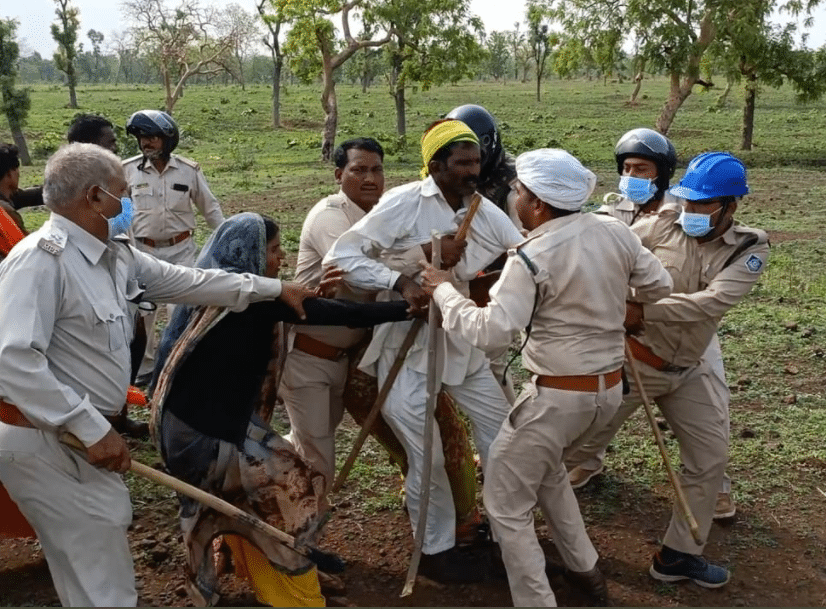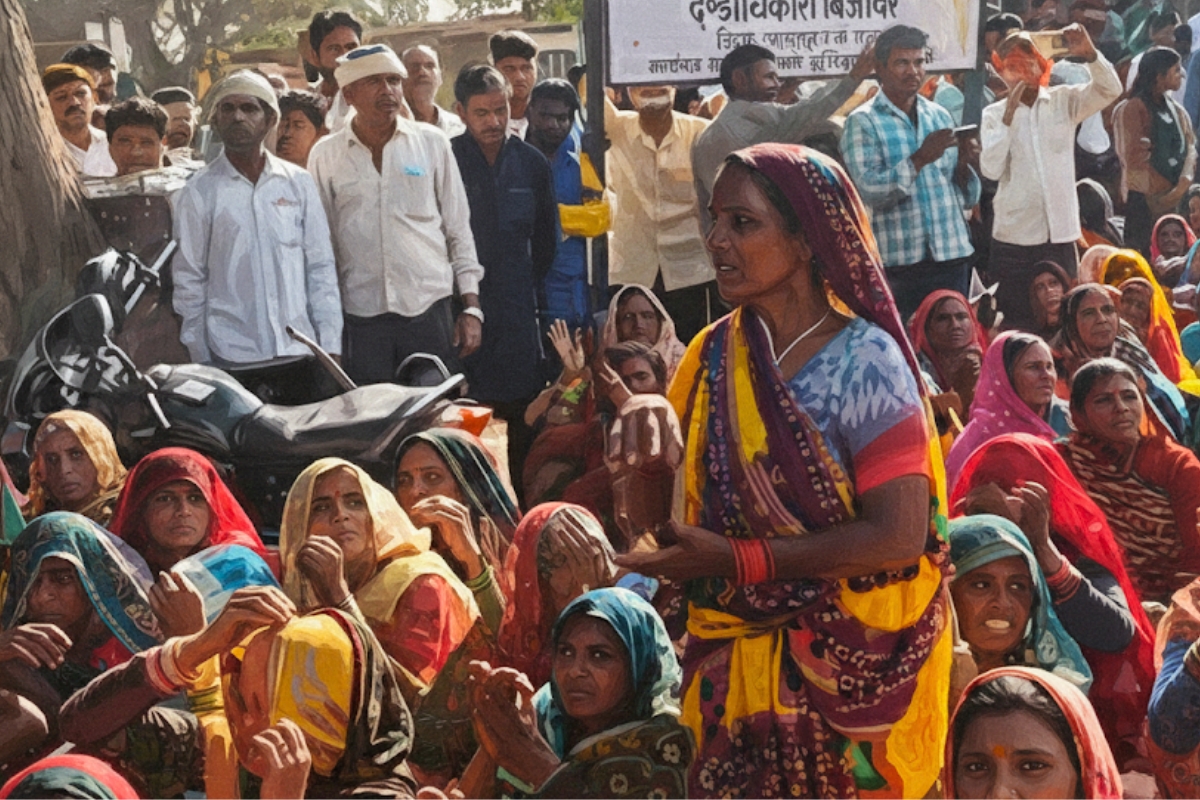Ground Report | New Delhi: Tribal community evicted from homes; Amid the ongoing pandemic, over 40 tribal families belonging to the Bhil and Barela tribal community under Khandwa district in the Jamnia region of Madhya Pradesh have been rendered homeless. The state forest department, in its proceedings on July 10, bulldozed many houses despite a moratorium on any evictions amid the pandemic.
Tribal community evicted from homes
“More than 200 men belonging to the forces stormed our territory – without warning or any notice … We were threatened and abused by the department. Our houses have been destroyed and we have no clothes to wear. There is nothing more,” Ramlal Buda, who was forced to evict, told NewsClick.
Activists allege that families dependent on forest produce, animal husbandry, and small farming practices have applied for land rights under the Forest Rights Act, making the grounds of demolition illegal. After the demolition, the department reportedly detained four tribal community members as well as members of Jagrit Adivasi Dalit Sangathan (JADS).
ALSO READ: Pakistani hackers targeted India’s power sector, govt organisation
Members of the community alleged that the authorities destroyed their fields and crops, cutting off their source of food and livelihood. Buda was among the few people who were allegedly attacked by the authorities. The authorities then detained four members of the community, including a 12-year-old child and members of Jagrit Adivasi Dalit Sangathan (JADS), a mass organization based in Madhya Pradesh.
Violation of Forest Rights Act
Activists and community members claim that the eviction is a violation of the Forest Rights Act (FRA). Formally known as the Scheduled Tribes and Other Traditional Forest Dwellers (Recognition of Forest Rights) Act, 2006, the Act is an important piece of legislation to recognize the rights of forest-dwelling communities to forest land and resources. Was – it would be the Ministry of Tribal Affairs that has undone the “historic injustice” done to Scheduled Tribes and other traditional forest dwellers.
The implementation of the FRA, however, remains weak. FRA mandates a transparent monitoring system for disputes or claims on forest land. In the present case, the forest officials allegedly evicted the members of the community without shelter, without any prior warning. This is more worrying during the pandemic. (Tribal community evicted from homes)
ALSO READ: Reality of Child Labour in India?
The current removal comes amid recent and escalating disputes between forest dwellers and the judiciary and law enforcement over the legality of forest land claims. The dispute is based on the ability to prove ownership of a particular land using title documents and other established procedures – documents that tribal groups often do not have. As of February 2021 this year, government officials have rejected 45% of all claims to tribal land.
Forest land
According to the latest figures from the Ministry of Tribal Affairs, a total of 20,01,919 claims on forest land – both in terms of individual and community rights – were rejected against the same number of claims across the country by the end of February 2021. which have been accepted. This works out to around 45% of the disclaimers across the country, with another 4.61 lakh claims pending for settlement. These figures will be considered final when presented to the Supreme Court, as this is a review being conducted in accordance with its orders.
In the last week of June, a Public Interest Litigation (PIL) was filed in the Jabalpur High Court by a woman from the Mavasi tribe of Satna district, alleging that the claim was made through the Gram Sabha as per the rules of FRA, 2006 I went. was rejected for not being uploaded on the MP Van Mitra Portal. It has been argued in the PIL that the procedure adopted by the Madhya Pradesh government violates the provisions of the FRA, which envisages only a transparent three-tier monitoring system for the settlement of claims on forest land.
Image credit: News Click
You can connect with Ground Report on Facebook, Twitter and Whatsapp, and mail us at GReport2018@gmail.com to send us your suggestions and writeups.







